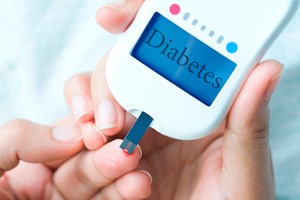The European Centre for Disease Prevention and Control (ECDC) has issued a stark warning about the rising cases of mosquito-borne diseases in Europe, attributing the surge to climate change. The region comprising the European Union (EU) plus Iceland, Liechtenstein, and Norway (EEA) has witnessed a significant increase in the number of locally acquired cases of dengue and other mosquito-borne illnesses.
In 2023 alone, 130 locally acquired cases of dengue were reported, compared to 71 in the previous year. This represents a notable uptick from the 2010-2021 period, during which the total number of cases reported was 73, according to the Stockholm-based ECDC. Additionally, the number of imported cases has been on the rise, with 1,572 cases reported in 2022 and a staggering 4,900 in 2023, marking the highest number since EU monitoring began in 2008.
The director of ECDC, Andrea Ammon, underscored the direct correlation between climate change and the proliferation of mosquito-borne diseases. "Europe is already seeing how climate change is creating more favorable conditions for invasive mosquitoes to spread into previously unaffected areas and infect more people with diseases such as dengue," she stated.
Ammon emphasized the impact of rising temperatures in summer and milder winters, facilitating the spread of mosquitoes into new territories where they were previously absent.
Concerning the West Nile virus, 713 locally acquired cases were reported in 123 different regions across nine EU countries in 2023, resulting in 67 fatalities. Although the number of cases decreased from 1,133 in 2022, the number of affected regions was the highest since 2018.
The mosquito species responsible for spreading the West Nile virus, Culex pipiens, is native to Europe and is present throughout the EU/EEA, according to the ECDC.
Moreover, the Aedes albopictus mosquito, known for transmitting dengue, chikungunya, and Zika viruses, is expanding its territory further north, east, and west in Europe, now having self-sustaining populations across 13 EU/EEA countries, as reported by the ECDC.
Furthermore, the Aedes aegypti species, which spreads yellow fever, dengue, chikungunya, and Zika, has recently established itself in Cyprus and several outermost EU regions, including Madeira and the French Caribbean islands.
The ECDC underlined the anticipated impact of climate change on the spread of mosquito-borne diseases in Europe, particularly through the creation of environmental conditions conducive to the establishment and growth of mosquito populations.
To combat the rising threat of mosquito-borne illnesses, the agency stressed the importance of implementing coordinated measures, including insecticidal nets, indoor residual spraying, and simple preventative actions such as removing stagnant water from balconies and gardens. Personal protective efforts to reduce the risk of mosquito bites were also deemed essential in curbing the spread of these diseases.
By: https://health.economictimes.indiatimes.com/













